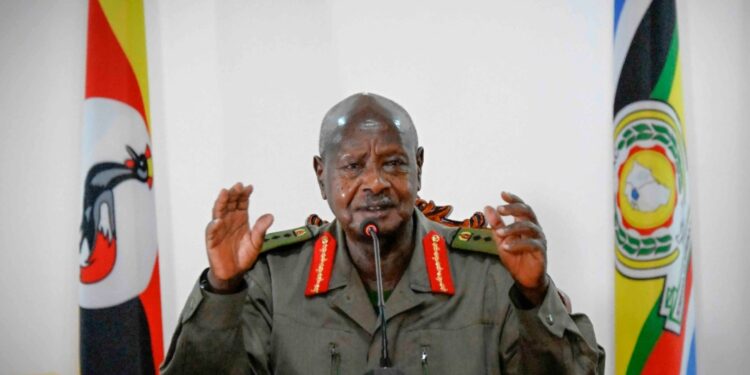In a dramatic turn of events, President Yoweri Museveni’s decree for the swift introduction of digital number plates ignited a raging inferno of controversy and resistance.
Despite fervent pleas from human rights activists, Museveni’s iron will spurred the ministries of Works and Transport and Security into rapid action, propelling the contentious project forward.
Standing tall, Museveni vehemently defended his stance, drawing a fervid analogy between the effectiveness of surveillance cameras and the imminent role of digital number plates in the fight against crime.
“I’m now insisting on the electronic number plates. Please, I want my number plates. Don’t delay my number plates. I don’t want these aimless number plates. I want intelligent number plates for the vehicles,” boomed the President, commanding attention at the Kabalye Police Training School in Masindi district.
Exuding unwavering confidence, Museveni emphasized the plates’ pivotal role in crime investigations, particularly in combating terrorism.
“You will see these terrorists who have been killing people from Congo. We are going to finish them. I have told them; we’re going to kill all of them. We have everything needed,” he declared with an air of determination.
However, Museveni’s resolve faced an unyielding challenge from the global advocacy group, Human Rights Watch (HRW). Oryem Nyeko, an HRW Uganda researcher, vehemently condemned the government’s initiative, equating the digital number plates to an insidious mechanism for unchecked mass surveillance.
Nyeko warned that such a system could obliterate the privacy rights of millions of Ugandans and potentially be wielded as a tool for political manipulation, echoing the nation’s dark history with surveillance tactics.
Uganda’s new transport surveillance system amounts to unchecked mass surveillance of all vehicles at all times, undermining the right to privacy for millions of Ugandans. The government should focus on protecting its citizens’ rights instead of abusing them,” affirmed Oryem Nyeko.
The launch of the digital number plates, initially targeting government-owned vehicles, unfolded at the commencement of the month, marking the initiation of a controversial 10-year agreement with a Russian company.
This deal aimed to embed digital tracking chips into every registered automobile number plate, cementing the nation’s foray into the Intelligent Transport Management Systems program.
Parliament approved the mandatory use of digital trackers on vehicles and motorcycles in the country and will see data of all driving permit holders from Face Technologies integrated with the ones of police and Uganda Revenue Authority to help track defaulters.
As the nation stood at a precipice, torn between the promises of heightened security and the specter of pervasive surveillance, the debate raged on, casting a looming shadow over Uganda’s future.
The clash between safeguarding citizen rights and the pursuit of national security intensified, leaving the populace in a precarious balance between the allure of safety and the erosion of privacy.
Do you have a story in your community or an opinion to share with us: Email us at editorial@watchdoguganda.com













